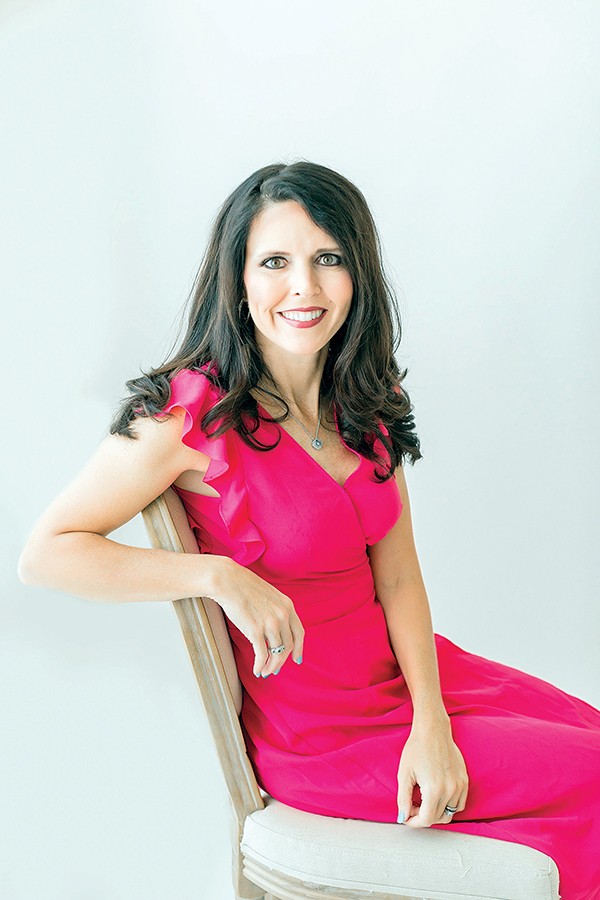Family Nurse Practitioner (FNP) Bridgett Spillers’ life changed on October 15, 2015.
“I was going through my nightly routine and had a slight itch on my back,” she says. “I reached around to scratch and felt something odd in my left breast.”
As an FNP — and with sites like WebMD at our fingertips — Spillers knows it’s easy to self-diagnose. “Sometimes too much knowledge is a curse,” she says. But she was sure what she felt was a lump, despite having a clinical breast exam done two months prior and receiving a negative result on a breast cancer gene risk test. It would be two weeks before she could get in to see an oncologist, but “after a battery of tests,” Spillers says, “I was diagnosed with HER2-positive breast cancer.”
 Jaime Rogl Photography
Jaime Rogl Photography
Bridgett Spillers
The earliest stages of a cancer diagnosis are often the most arduous, she adds. “There are more questions than answers, and no matter how hard you try, it’s difficult not to think the worst.” HER2 is an aggressive cancer. She thought about her husband and three young children — would she be there for them? What would happen to her career? What about a mastectomy, chemo, radiation? Spillers says her emotional turning point came after meeting with an oncologist and formulating a plan because “every day of waiting was delaying the fight and hurting my chances of a successful outcome.”
Spillers went through six rounds of chemotherapy, but after the fourth, the treatment plan “was validated,” she says, “because the tumor was undetectable via ultrasound.” After chemo, she underwent a double mastectomy, followed later by reconstruction. A follow-up biopsy showed she “had a pathological complete response — no detectable cancer.
“For about six months, my life was back to normal, cancer was in my rearview, or so I thought,” Spillers says. But, like before, it started with an itch … The cancer came back.
The second time around, Spillers had a lumpectomy, followed by 12 weeks of chemo, six weeks of radiation, and another year of antibodies. “My hair had just grown back,” she says, “so I was determined to try to preserve it. I’d heard about cold caps, so I researched and decided to give it a try. It was cumbersome but preserved my newly grown hair.”
Cold caps are worn by some cancer patients to help reduce hair loss by decreasing the amount of chemo medicine that penetrates the hair follicles.
Today, Spillers is an advocate for others going through the breast cancer experience. Her oncologist refers patients interested in doing cold caps to her to guide them through the process. “It usually turns into more as they find out I have been through everything,” she says. “I often talk to them several times, helping them through their journey. People will send others my way just for encouragement.”
Spillers, 41, and her family relocated from Abilene, Texas, to the Memphis area two years ago after her husband, now a FedEx pilot, retired from the Air Force. Shortly after the move, she went through that second breast cancer journey and was treated at West Cancer Center in Germantown. “Today I have an excellent prognosis,” Spillers says. “I’ve been cancer free for a year.”
Statistics suggest one in eight women will develop breast cancer. And Spillers says, “Early detection is key. Having routine check-ups important, but doing self-exams is just as important. Periodic exams help you get used to how your breast tissue feels, so that you can feel when something is different.”
If you or a loved one receives a breast cancer diagnosis, Spillers says to talk with your health-care provider to learn about treatment options and devise a plan of attack that’s best for you. But perhaps most importantly, remain positive. “It is a long journey,” she says. “Approaching it one step at a time makes it more bearable. I have a saying: Keep your faith, have hope, and choose joy. I make an effort to choose joy, even when I struggle.”